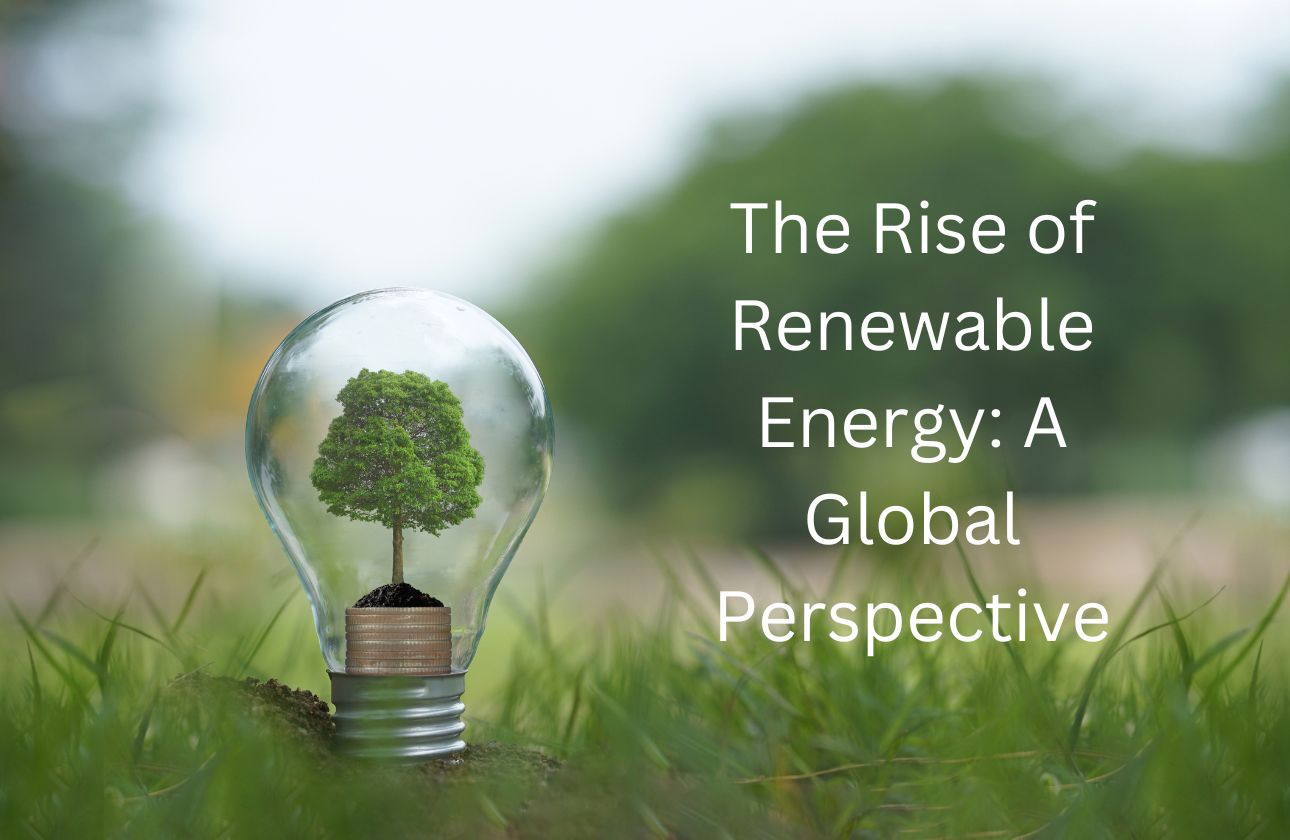The Rise of Renewable Energy
In recent years, the rise of renewable energy has captured the world’s attention. As climate change continues to pose significant threats to the planet, more countries are recognizing the importance of transitioning from fossil fuels to cleaner, more sustainable energy sources. This global shift is not only driven by environmental concerns but also by the need for energy security and economic development. In this blog post, we will explore the global perspective on renewable energy and highlight key factors fueling its rise.
The Growing Demand for Clean Energy
The demand for renewable energy has surged as countries strive to meet ambitious climate goals and reduce their carbon footprints. Governments, organizations, and individuals are increasingly aware of the need to reduce greenhouse gas emissions to prevent further environmental degradation. In fact, many countries have committed to reaching net-zero emissions by 2050 or earlier, which has led to an accelerated adoption of renewable energy sources such as wind, solar, hydropower, and geothermal energy.
Advancements in Technology
One of the driving forces behind the rise of renewable energy is advancements in technology. Over the last decade, the efficiency of renewable energy technologies has significantly improved, making them more cost-effective and accessible. Solar panels, for example, are now cheaper and more efficient than ever before, allowing even small-scale producers to harness solar energy. Wind turbines have also seen similar improvements, making it easier for countries to tap into wind energy on a larger scale.
Financial Investment and Government Policies
Governments worldwide are recognizing the importance of renewable energy in tackling both environmental and economic challenges. Many countries have introduced policies and incentives to promote renewable energy development, such as tax credits, subsidies, and feed-in tariffs. These government initiatives, combined with growing investments from private enterprises, are helping to drive the renewable energy sector forward. In fact, global investment in renewable energy reached a record $500 billion in 2020, highlighting the economic potential of green energy.
Job Creation and Economic Growth
Renewable energy is not just an environmental imperative; it is also an economic opportunity. The renewable energy sector has been a significant source of job creation in recent years, providing employment opportunities in manufacturing, installation, maintenance, and research. According to the International Renewable Energy Agency (IRENA), the renewable energy industry employed more than 12 million people globally in 2020, with solar energy accounting for the largest share of jobs. The rise of renewable energy offers a pathway to sustainable economic growth, particularly in developing nations looking to expand their energy infrastructure.
The Role of International Cooperation
The global transition to renewable energy requires cooperation between nations, especially when it comes to sharing knowledge, technology, and financing. International organizations such as the United Nations and the International Energy Agency (IEA) play a key role in facilitating this collaboration. By working together, countries can help each other overcome challenges such as financing and technology gaps, ensuring that the benefits of renewable energy are distributed fairly across the globe.
The Future of Renewable Energy
Looking ahead, the future of renewable energy is incredibly promising. As countries continue to focus on decarbonization and energy security, the renewable energy market will likely expand even further. Advances in energy storage, smart grids, and digital technologies are expected to enhance the efficiency and integration of renewable energy into existing energy systems. Furthermore, emerging technologies like floating solar panels and offshore wind farms are opening up new possibilities for harnessing renewable energy.
While challenges remain—such as energy storage, grid integration, and the need for more sustainable materials—the progress made so far in renewable energy adoption is nothing short of remarkable. With continued technological innovation, political will, and international collaboration, the world is well on its way to a cleaner, greener energy future.
The rise of renewable energy is a global movement that is reshaping the way we think about power generation. It offers a sustainable solution to the pressing challenges of climate change, energy security, and economic development. As technology continues to advance and more nations commit to renewable energy goals, we can expect to see even greater strides toward a cleaner and more sustainable world.




Comments (0)